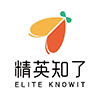天津经济技术开发区国际学校(天津分校):美本十大面试问题
本文由天津经济技术开发区国际学校(天津分校)整理发布,欢迎联系预约参观学校
总体面试原则 (Before You Start)
STAR法则: 回答行为类问题(如领导力、社区服务)时,用 Situation(情境), Task(任务), Action(行动), Result(结果)的结构来组织答案。
Be Specific: 避免空话。用具体的例子、故事和数据来支撑你的观点。
Be Positive: 即使是谈论“最不喜欢的科目”,也要展现出你从中学到了什么以及如何克服困难。
Be Authentic: 做你自己。面试官希望了解真实的你,而不是一个完美的答题机器。
Connect to Your Future: 尽可能地将你的答案与你在大学的目标、你选择的专业以及你未来的规划联系起来。

-
Self-Introduction (自我介绍)
目的: 这不是重复你的简历。这是一个让你在2-3分钟内highlight你的个人特质、核心热情和亮点的机会,为整个面试定下基调。
策略: 将你的学术兴趣与个人特质相结合,展示一个立体的你。
结构建议:
Present: 简单介绍你是谁,来自哪里。“Hello, I'm [Name], a high school senior from [City, China].”
Academic Passion: 立刻点明你的核心学术兴趣。“My academic life revolves around my fascination with [你的专业,e.g., Computational Biology].”
Proof with Example: 用一个具体的例子证明你的热情。“This passion sparked when I led a research project on using AI to predict protein structures, which won me the [某个奖项].”
Personal Touch: 加入一个独特的个人爱好或特质,让你显得与众不同。“Outside the lab, I'm also an avid debater, which honed my critical thinking skills, and a dedicated Chinese calligraphy practitioner, which keeps me grounded.”
Future Glimpse: 简要提及你对大学学习的期待。“I'm eager to bring this blend of analytical rigor and creative expression to [大学名称]'s collaborative community.”
2. Hobbies (兴趣爱好)
目的: 了解你在学业之外是个怎样的人,你是否能平衡生活,以及你是否能为校园社区带来活力。
策略: 避免泛泛地说“reading”或“traveling”。深度优于广度。
不要说: “I like playing basketball and listening to music.”
可以说: “I’m the point guard for my school's basketball team. Beyond the competition, what I value most is the teamwork and trust we've built over three seasons. We even organized a charity tournament last year to raise funds for rural sports facilities. As for music, I'm deep into vinyl collecting, specifically 70s jazz fusion. The process of hunting for a rare record and appreciating the analog sound is a form of meditation for me.”

3. Describe Your Family (描述你的家庭)
目的: 了解你的成长背景、价值观以及你从家庭中学到的重要课程。
策略: 聚焦于家庭如何塑造了今天的你,而不是简单罗列家庭成员。
例子: “My family is a small but incredibly supportive unit. My mother, a software engineer, instilled in me a problem-solving mindset and the courage to debug life's challenges. My father, a history teacher, taught me the importance of context and learning from the past. Their combination of analytical and humanitarian perspectives is exactly why I want to pursue a major that sits at the intersection of technology and society, like Science, Technology, and Society (STS).”
4. Do You Like Reading? (你喜欢阅读吗?)
目的: 考察你的智力好奇心、批判性思维和深度思考的能力。
策略: 准备好1-2本你真正读透的书,最好是近期读的与非虚构类书籍。
不要说: “I like reading Harry Potter.” (太普通,且是虚构类)
可以说: “Recently, I've been fascinated by ‘The Code Breaker' by Walter Isaacson. It's not just a biography of Jennifer Doudna and CRISPR; it made me think deeply about the ethical implications of gene editing. It solidified my desire to study bioethics alongside my pre-med track. The book raised a question I'm still pondering: how do we balance scientific progress with moral responsibility?”

5. Why US? (为什么选择美国?) / Why This University? (为什么选择我们学校?)
目的: 测试你是否有明确的留学目标,以及你是否真的对我们学校有深入的了解和研究。这是最重要的问题之一。
策略: 必须具体! 证明你花了时间研究他们的课程、教授、社团等。
Avoid: “The US has a good education system and diverse culture.” (太宽泛)
Do:
Academic: “I'm specifically drawn to your [具体的专业项目或特点,e.g., Open Curriculum] because it would allow me to combine my interest in Computer Science with Philosophy. I've read Professor [名字]'s paper on [主题], which aligns perfectly with my research interests.”
Extracurricular: “Beyond academics, I was excited to see the [某个独特的社团或活动,e.g., ‘Rocketry Club' or ‘Sustainable Farm initiative']. I founded a similar club in my high school and can't wait to contribute to yours.”
Community/Culture: “I've connected with a current student through LinkedIn, and they spoke highly of the collaborative rather than cutthroat culture within the engineering department, which is exactly the environment I'm seeking.”
6. Leadership (领导力)
目的: 理解你如何影响他人、克服挑战和承担责任。
策略: 领导力不一定是“主席”或“队长”。它可以是你发起的一个项目、解决的一个团队冲突或辅导的一个学弟。
用STAR法则回答:
Situation: “As the head of our school's Model UN club, we faced declining membership and engagement.”
Task: “My task was to revitalize the club and attract new members.”
Action: “I initiated a ‘Beginner's Bootcamp' workshop series, pairing experienced delegates with newcomers. I also shifted our focus to more contemporary crises, like the AI governance debate, to make it more relevant.”
Result: “As a result, our membership increased by 40% in one semester, and our team won ‘Best Delegation' at the next conference. More importantly, I learned that leadership is about empowering others.”
7. Community Service (社区服务)
目的: 考察你的 empathy(共情力)、社会责任感以及将想法转化为行动的能力。
策略: 质量远胜于数量。招生官不喜欢看到为了凑数而做的“志愿旅行”。长期、深入的承诺更有说服力。
例子: “For the past two years, I've volunteered every weekend at a local community center teaching coding to underprivileged children. I started with basic Scratch, but seeing their interest, I developed a 10-week curriculum on Python. One of my students went on to create a simple app for tracking air quality in her neighborhood. This experience taught me that the most impactful service is sustainable and leverages your unique skills to create lasting change.”

8. Which Subject Do You Like Most/Least? (最喜欢/最不喜欢的科目)
目的: 了解你的学术偏好、优势和自我认知能力。
Like Most: 同“自我介绍”和“Why Major”,将其与你的热情和未来目标联系起来。
Like Least: 关键是要积极正面! 不要只是抱怨。
不要说: “I hate history because it's boring and full of memorization.”
可以说: “I found Chemistry initially challenging due to the heavy reliance on abstract concepts and formulas. However, I recognized its importance for my intended major in molecular biology. I started forming a study group where we used real-world examples, like cooking (which is just applied chemistry!) to understand the concepts. It taught me perseverance and how to adapt my learning style to overcome obstacles.”
9. Overseas Experience (海外经历)
目的: 评估你的跨文化适应能力、独立性和开放性。
策略: 如果有,重点谈文化冲击和你的学习收获。如果没有,完全可以诚实回答,并表达你渴望体验的意愿。
有经历: “I attended a summer program at Stanford in 2023. The most valuable part wasn't just the coursework, but collaborating on a group project with students from 5 different countries. We had very different approaches to problem-solving, which initially caused friction. But we learned to leverage our diverse perspectives, and it resulted in a much more innovative solution. It gave me a preview of the global classroom I hope to find in the US.”
无经历: “I haven't had the opportunity to study abroad yet, which is exactly why I'm so excited about the prospect of attending university in the US. I've actively sought out cross-cultural experiences locally, like participating in online international debate forums and volunteering as a city tour guide for exchange students. I'm a quick adapter and can't wait to immerse myself in a new environment.”
10. Do You Have Any Questions for Me? (你有什么问题问我吗?)
目的: 最后的机会展示你的投入度和思考深度,同时也是你获取信息的机会。
策略: 一定要提问! 准备2-3个深入的问题。避免那些在学校网站上能轻易找到答案的问题(如申请截止日期)。
优秀问题示例:
“Based on your experience, what common trait do the most successful students at [大学名称] share?”
“I'm interested in [具体研究领域]. How accessible are undergraduate research opportunities with faculty, and could you share an example of a project a student might work on?”
“What is one new initiative or project the university is excited about for the coming year?” (这表明你关注学校的发展)
“What is something you wish more prospective students knew about [大学名称]?” (这是一个能带来真诚回答的好问题)
避免问: “What's the average SAT score?” or “How's the weather there?”

祝你面试顺利!记住,自信、真诚和充分的准备是你最好的装备。
 国际教育信息、择校、咨询服务平台 - 国际教育前线
国际教育信息、择校、咨询服务平台 - 国际教育前线



